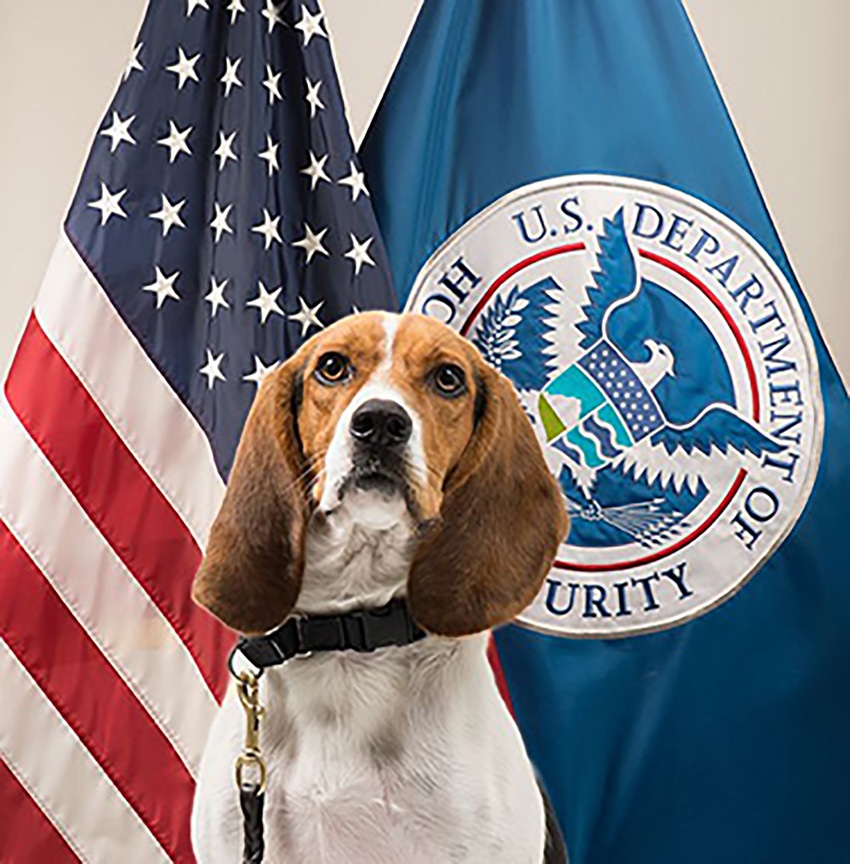Legislation authorizes hiring additional agricultural inspectors at ports of entry.

The U.S. Senate has unanimously approved bipartisan legislation to address the shortage of agricultural inspectors who protect the nation’s food supply and agricultural industries at the border. The Protecting America’s Food & Agriculture Act of 2019, introduced by Sens. Gary Peters (D., Mich.), Pat Roberts (R., Kan.), Debbie Stabenow (D., Mich.) and John Cornyn (R., Texas), would ensure the safe and secure trade of agricultural goods across the nation’s borders by authorizing U.S. Customs & Border Protection (CBP) to hire additional inspectors, support staff and canine teams to fully staff America’s airports, seaports and land ports of entry.
“Agriculture is a critical economic driver in Michigan and across the country, but long-standing shortages of agricultural inspectors limits Customs & Border Protection’s ability to prevent pests, diseases and other dangers from entering our country and puts production at risk,” Peters said. “Every day, millions of passengers and tens of thousands of shipping containers carrying food products cross our nation’s borders, any one of which could do significant damage to America’s food supply and agricultural industries. I’m pleased the Senate unanimously approved my bipartisan bill to fill this unacceptable security gap, and I look forward to its swift consideration in the House of Representatives.”
The passage by unanimous consent is a testament to the bill’s importance, Roberts said, adding, “I’m pleased we are one step closer to getting this legislation to the President’s desk, and I urge the House of Representatives to take up and pass this legislation swiftly.”
The U.S. Department of Agriculture and CBP work together to facilitate the safe and secure entry of agricultural goods into the U.S. The program’s agricultural specialists and canine units conduct inspections of passengers, commercial vessels, trucks, aircraft and railcars at U.S. ports of entry to protect health and safety by preventing the entry of harmful goods and invasive species that may pose a threat to American food and agriculture. On a typical day, those inspectors process more than 1 million passengers and 78,000 truck, rail and sea containers carrying goods worth approximately $7.2 billion. According to CBP estimates, there is a shortage of nearly 700 inspectors across the country.
The Protecting America’s Food & Agriculture Act would authorize the hiring of 240 agricultural specialists per year until the workforce shortage is filled and 200 agricultural technicians a year to carry out administrative and support functions. The bill also authorizes the training and assignment of 20 new canine teams per year, which have proved valuable in detecting illicit fruits, vegetables and animal products that may have otherwise been missed in initial inspections. Finally, the bill authorizes supplemental appropriations each year to pay for the activities of the agriculture specialists, technicians and canine teams.
Britton Clarke, president of the Border Trade Alliance, said, “The last several months have demonstrated how critically important well-resourced ports of entry are to the nation’s economic health. The Border Trade Alliance applauds this effort to ensure that ever-increasing volumes of cross-border agriculture trade can be processed securely and efficiently at our ports by highly trained CBP agriculture specialists. This is important legislation, and we thank Sen. Peters and Sen. Roberts for their good work to address this important staffing need.”
The bill was welcome news to many U.S. agriculture industries, but particularly the pork industry, as many overseas nations are battling the spread of African swine fever (ASF).
“Preventing the spread of African swine fever and other foreign animal diseases to the United States is our top priority,” National Pork Producers Council president David Herring said. “We appreciate all that the U.S. Department of Agriculture and the U.S. Customs & Border Protection are doing to strengthen biosecurity at our borders. To further safeguard American agriculture, we need additional agriculture inspectors at our sea and airports. This essential legislation will help address the current inspection shortfall, reduce the risk of ASF and other foreign animal diseases and protect the food supply for U.S. consumers.”
More broadly, Dr. Barb Glenn, chief executive officer of the National Association of State Departments of Agriculture (NASDA), said invasive species have been estimated to cost the U.S. economy more than $120 billion annually, with more than half of that amount representing damage to American agriculture.
“NASDA strongly supports funding for additional staff and canine units to enhance and maintain a framework designed to protect our nation’s food and agriculture through education, research, prevention, monitoring and control,” Glenn said.
About the Author(s)
You May Also Like



.png?width=300&auto=webp&quality=80&disable=upscale)

